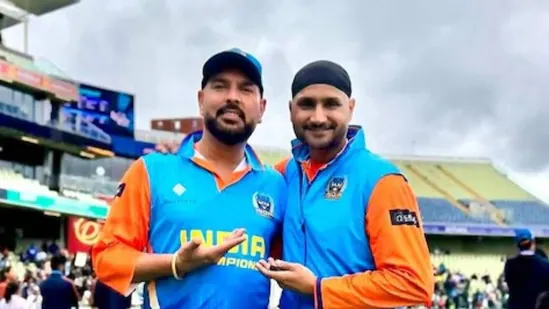
India
The much-anticipated India vs Pakistan clash under the banner of the World Championship of Legends (WCL) has been officially called off, following a wave of withdrawals by cricketing legends and a storm of criticism. The cancellation has come as a major disappointment to millions of fans worldwide who were eagerly looking forward to the high-voltage encounter that traditionally sets screens alight.
In the aftermath of the disruption, the WCL management issued a public apology, acknowledging that they had “unintentionally caused discomfort” to several players and stakeholders. The episode has sparked a fresh debate on the planning, transparency, and purpose of exhibition cricket events, particularly those involving national pride and legendary status.
What Went Wrong?
The match was originally scheduled as a flagship face-off in the World Championship of Legends, a tournament designed to bring together retired cricket stars from across the globe for a nostalgic, yet competitive, cricketing spectacle. The India vs Pakistan match was meant to be the show-stopper, rekindling memories of iconic on-field rivalries.
However, the event began to unravel days before the match, as reports surfaced that multiple legendary players had withdrawn, citing scheduling issues, lack of clarity on their roles, and discomfort over event management.
Among the notable withdrawals were Yuvraj Singh, Harbhajan Singh, and Shahid Afridi, whose absence cast a shadow on the credibility and competitiveness of the fixture. Rumors also suggested that some legends were uncomfortable with political undertones and the timing of the event, given the current diplomatic sensitivities between the two nations.
WCL Responds: “We Take Full Responsibility”
In a statement released following the cancellation, the WCL organizers admitted to shortcomings in communication and event handling. “We sincerely apologize to the players, the fans, and the broader cricketing community. Our goal was to celebrate cricketing excellence and camaraderie. Unfortunately, in trying to create a grand spectacle, we unintentionally caused discomfort to some of our legends and supporters,” read the statement.
The organizers also emphasized that there was no political intention behind the event and that the focus was purely on the game and honoring the icons who have brought joy to cricket fans for decades.
Fan Disappointment Runs Deep
For fans, the cancellation was nothing short of heartbreaking. Cricket lovers had bought tickets, arranged viewing parties, and flooded social media with anticipation in the lead-up to the big game. The India vs Pakistan rivalry, even in a legends format, carries an unmatched emotional weight—often viewed as more than just a game.
“This was not just a match—it was a memory in the making,” said one fan on Twitter. “Legends of both countries on the same pitch again? That’s gold. We deserved better planning and respect for our time and emotions.”
Online reactions were mixed, with some fans blaming organizers for poor management, while others sympathized with the players for withdrawing from an event that may not have felt right to them.
A Pattern of Problems in Exhibition Leagues?
The incident has also revived concerns over the mushrooming of private cricket leagues, many of which are under-regulated and often lack the professional structure of mainstream cricket bodies like the ICC or national boards. Several former cricketers have previously raised concerns about exploitation, unpaid dues, poor infrastructure, and lack of insurance coverage during such events.
“While these leagues offer entertainment and nostalgia, they must ensure proper protocols, respect for the legends involved, and transparent management,” said a former BCCI official anonymously.
Impact on Future Events
With the controversy now public, WCL’s credibility hangs in the balance. Organizers have promised a comprehensive review of operations, better player communication, and a renewed commitment to fan satisfaction. However, rebuilding trust will not be easy.
Sponsors, broadcasters, and fans may become more cautious moving forward. Meanwhile, players may demand more contractual clarity, assured safety, and professional treatment before lending their names and legacies to such tournaments.
Conclusion
The cancellation of the India vs Pakistan WCL match is not just a lost cricket game—it’s a lost opportunity. What was meant to be a celebration of legendary talent turned into a cautionary tale about event planning, sensitivity, and responsibility in modern sports entertainment.
While the WCL’s apology is a step in the right direction, fans and players alike will hope this serves as a wake-up call for better planning, more respect, and less haste when organizing events that hold such immense sentimental value.
In the world of cricket—where moments become memories and rivalries become history—such missteps must not be repeated.
Thanks For Reading